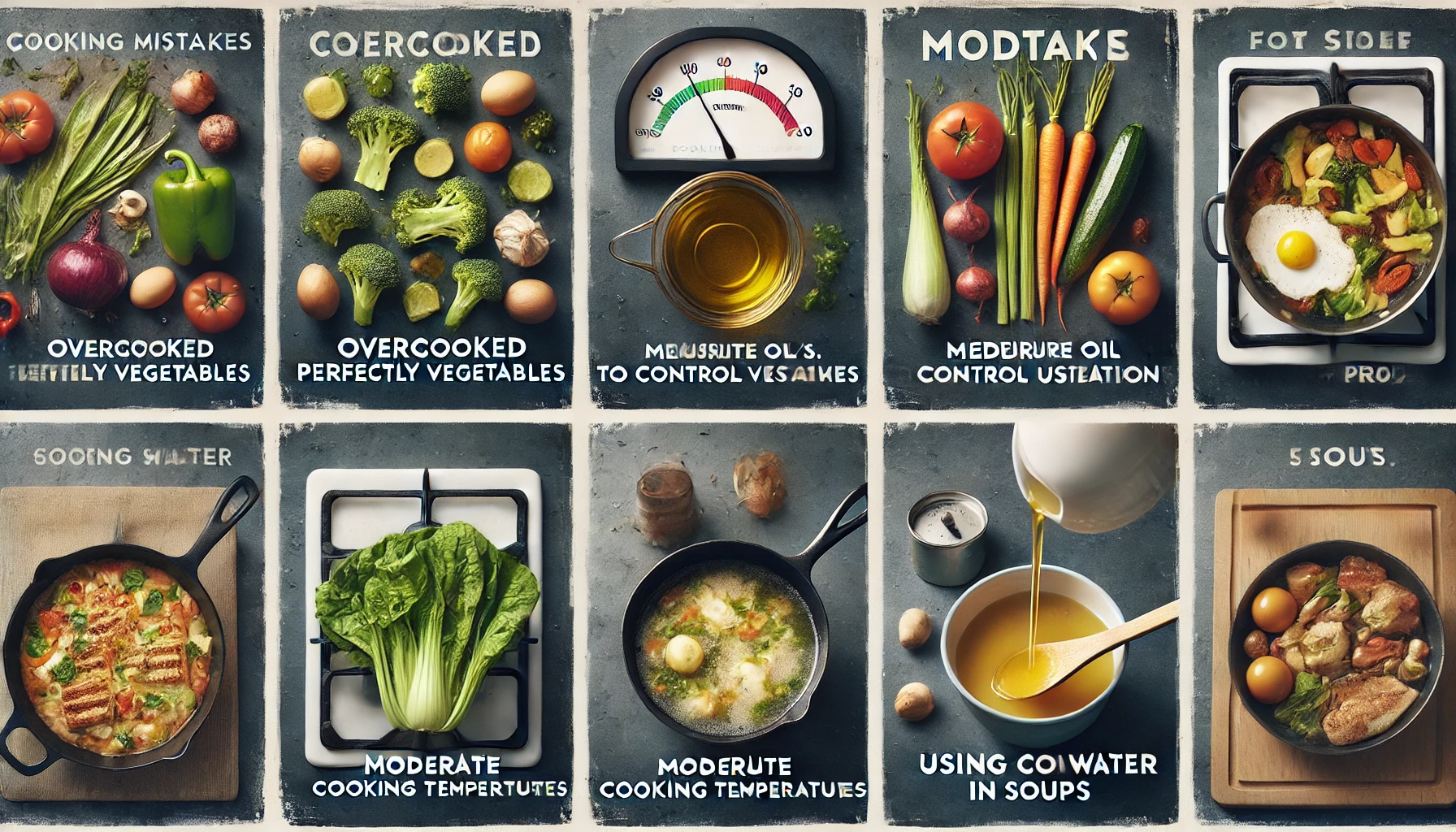Cooking at home is one of the best ways to ensure you’re getting nutritious meals. However, even with the best intentions, certain cooking mistakes can reduce the nutritional value of your food. Here are five common cooking mistakes to avoid to maximize the nutritional benefits of your meals.
1. Overcooking Vegetables
Mistake: Cooking vegetables until they are mushy.
Why it’s a problem: Overcooking vegetables can destroy essential vitamins and minerals, such as vitamin C and B vitamins, which are sensitive to heat and water.
Solution: Lightly steam, sauté, or roast vegetables until they are just tender. This helps retain their nutrients and enhances their natural flavors.
2. Using Too Much Oil
Mistake: Adding excessive amounts of oil during cooking.
Why it’s a problem: While some oils contain healthy fats, using too much can add unnecessary calories and potentially harmful compounds if the oil is overheated.
Solution: Use oils sparingly and opt for healthier options like olive oil or avocado oil. Measure the oil instead of pouring directly from the bottle to control the amount used.
3. Cooking at High Temperatures
Mistake: Frequently cooking food at very high temperatures, such as deep-frying or grilling until charred.
Why it’s a problem: High temperatures can create harmful compounds like acrylamides and heterocyclic amines (HCAs), which are linked to health issues. It can also destroy delicate nutrients.
Solution: Use moderate cooking temperatures and methods like steaming, baking, or stir-frying. If grilling, avoid charring the food and use marinades to reduce HCA formation.
4. Not Washing Produce Properly
Mistake: Skipping the washing step for fruits and vegetables.
Why it’s a problem: Unwashed produce can carry pesticides, bacteria, and other contaminants that can affect health.
Solution: Rinse all fruits and vegetables under running water before eating or cooking. For items with thick skins, use a brush to scrub the surface. For leafy greens, soak them in a bowl of water and then rinse thoroughly.
5. Discarding Cooking Water
Mistake: Throwing away the water used to boil vegetables.
Why it’s a problem: Many water-soluble vitamins and minerals leach into the cooking water, which is often discarded.
Solution: Use the cooking water in soups, stews, or sauces to retain those valuable nutrients. Alternatively, opt for steaming, which minimizes nutrient loss.
Conclusion
By avoiding these common cooking mistakes, you can ensure that your meals are not only delicious but also packed with essential nutrients. Small adjustments in your cooking methods can make a big difference in the nutritional value of your food.
